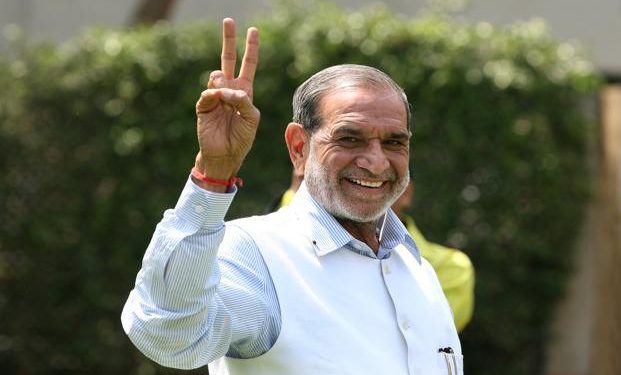Public faith in governing systems in India is steadily and woefully on the decline. Take for instance the Sikh riots cases, about which the Delhi High Court has come up with a judgement 34 long years after the incident. Accused Sajjan Kumar along with a few others who allegedly instigated people or played roles in the riots have been sentenced for varying terms of jail and Kumar has been given a life sentence.
Former British prime minister William Ewart Gladstone in the 19th Century had supposedly come up with the maxim: ‘Justice delayed is justice denied’. This seems relevant to all times. If this is the pace at which India’s judicial system functions in cases of mass massacres, all hope seems lost. One wonders how long it would take to dispense with justice in another scenario of horrendous bloodletting – the 2002 Hindoo-Moslem riots in Gujarat in which thousands of Moslems were killed by marauding Hindutva crowds and anti-socials jointly and separately. The leader at the helm of affairs in Gujarat, then chief minister Narendra Modi, has meanwhile shifted gears, won national elections and presided over a government for the past nearly five years and is all set to seek a second term in office. With judicial systems moving at a snail’s pace, can justice ever be meted out to the elements in the forefront of those riots is a serious question.
Between three to four lakh undertrial prisoners are languishing in jails across India for very many years, and no one is bothered about their fate. Their cases are not even heard. If an accused is innocent until proven guilty, they can all be considered innocent, and yet are living their lives in the most tragic form in dark cells. Despite recommendations made by the National Legal Services Authority, not many undertrials were released after a set time, or their cases taken forward, as was noted by the Supreme Court with grave concern a year ago. Neither the government nor the courts are serious about human rights or meting out justice to the weaker sections of society. Many of them are languishing in jails for the reason that they cannot afford to meet expenses for fighting their cases through lawyers.
Worse, even in the case of the Rajiv Gandhi assassination, which took place in 1991 in Sriperumbudur, the last word from courts is yet to be heard. The cases are heard, arguments are advanced in place and out of place, and the legal trapeze act goes on for decades. Who benefits from dragging the cases is probably common knowledge. If a case cannot be judged even in a span of a decade, India’s judicial system has no moral ground to claim it is dispensing with justice.
Neither the Congress-led governments nor the BJP-led government at the Centre have shown interest to set things right or expedite the course of justice-dispensation in this country.
A section of Congress leaders was blamed for the anti-Sikh riots that killed many Sikhs in 1984, after Indira Gandhi was shot dead by her security guard Beant Singh. Some of them, such as HKL Bhagat, are already dead and gone. Another leader caught in the shadow of the crimes, Kamal Nath, 72, is a leading Congressman and has now been installed as chief minister of Madhya Pradesh. The likes of Narendra Modi and Amit Shah, accused of complicity in Gujarat killings, are now at the head of the BJP and the governing class in Delhi.
The Delhi High Court has sentenced Sajjan Kumar to life term. The legal saga does not end there. Here is simply a pause, and the cases are bound to go now to the Supreme Court, which could take its own sweet time to give its verdict. Then too, there is scope for review petitions. In death sentences, the matter would then go to the President by way of clemency petitions. The wheel of justice goes round and round to nowhere.






































